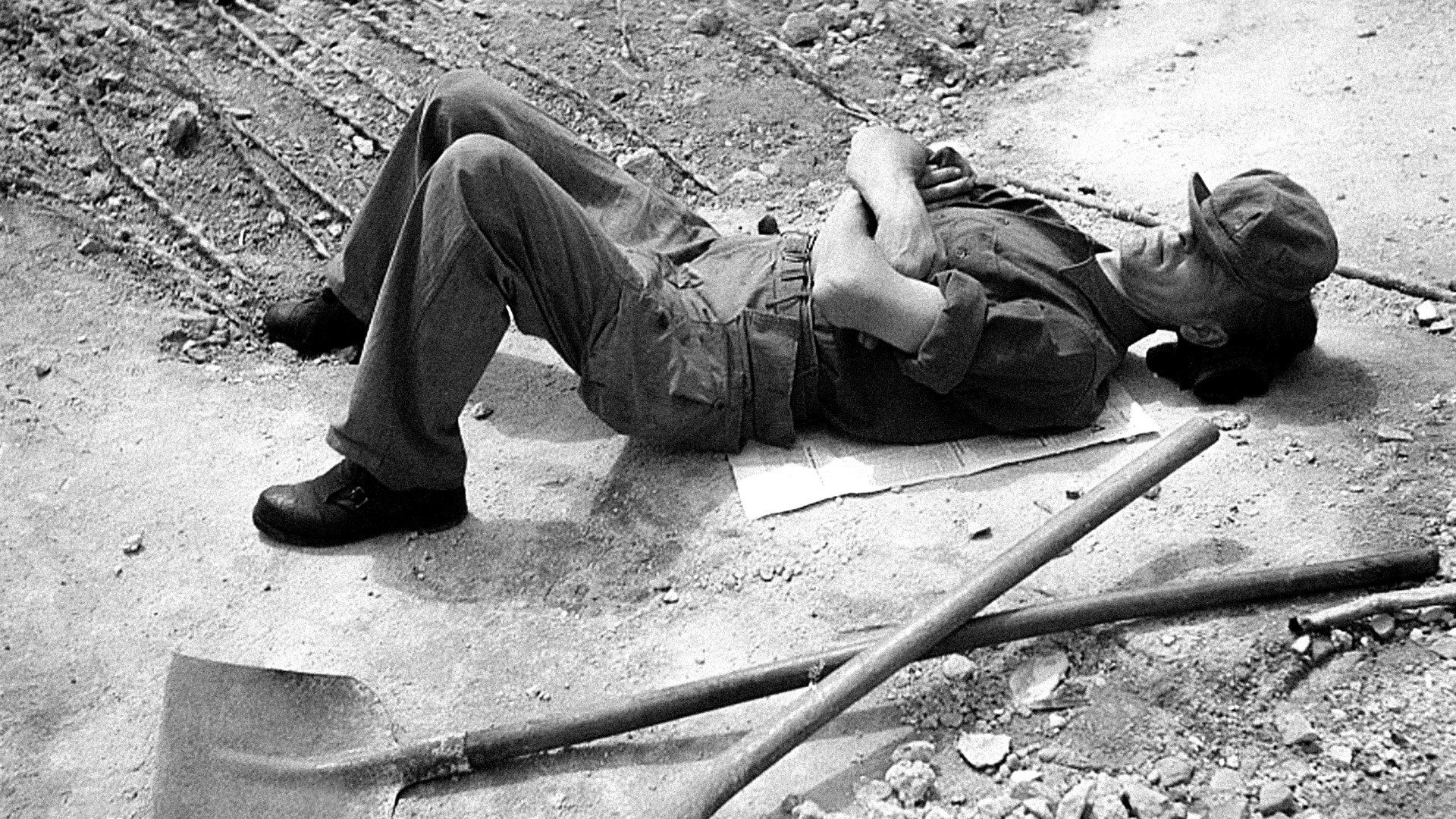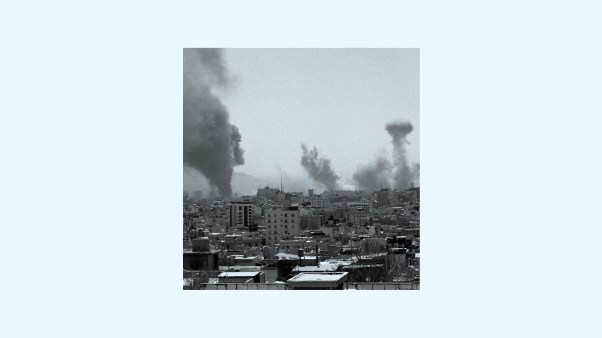Everywhere we look we see people pushing themselves—their bodies, their minds, and their capacity for faithfulness and fruitfulness—to the limit. In some ways, society incentivizes this “to the limit” way of life: If you want to get ahead, it’s the price to pay.
But in other ways, society demands this lifestyle. People at the bottom of our socioeconomic ladder feel this most acutely, yet no one is immune. No matter the reason, we are trapped by our systems of productivity, and we take as much as we can from ourselves, burning the proverbial candle at both ends.
If you’ve ever thought, Enough is enough!—quietly protesting demands your body cannot meet—you certainly aren’t alone. I regularly wrestle with these feelings, sorting through my values and priorities, wondering if I’m conceding a good and whole life to the superficial aspirations of an unrelenting consumer society.
This is why I find myself grateful for the gift of Sabbath. Sabbath is God’s way of saying, Enough is enough.
Sabbath is an invitation to orient our lives around a different rhythm of practice, one that recognizes the moral limit to what we should expect our bodies and our lives to produce, and to the profit potential we should extract from ourselves and others.
Walter Brueggemann reminds us that Sabbath is framed through the stories of both Creation and Exodus. The Scriptures first frame the seventh day as God resting from the work of creation (Gen. 1). Is this because God lacks the capacity to continue? Hardly! Instead, God models for all of creation the idea that there is a moral limit to the demands of production. God invites people to join in his rest as a way of taking delight in creation. The seventh day is a regular rhythmic reminder of God’s abundance, and it is an invitation to celebrate.
The Scriptures also frame Sabbath as a straightforward response to God’s liberation of the people from slavery in Egypt (Deut. 5). Against the backdrop of generations of economic exploitation, where God’s people were counted as units of production building the storehouses of Pharoah’s wealth, Sabbath is equally God’s invitation to experience freedom and restoration from the effects of immoral extraction and unjust exploitation.
Sabbath finds its meaning in the generative and liberative power of God. Perhaps this is why the command of Exodus 20:8 is to “remember the Sabbath Day by keeping it holy.” The set-apart sacredness of Sabbath is meant to be a consistent rehearsal of the grand story of God and our invitation to join it.
Practicing Sabbath involves patterns of life that delight in God’s abundance and put ourselves in the stream of God’s restoration. Those one-day-in-seven spiritual practices of Sabbath do well to orient us away from the demands of production and to help foster a life of celebration and restoration.
But there is more to it than that, because Sabbath is not just for persons; Sabbath is for the people.
Sabbath was not designed by God for isolated individuals but as a reset for the community. Beyond the laws governing the weekly day of rest, scriptural Sabbath practice included a regular rhythm of society-wide redress of economic injustice.
Every seven years, God demanded that debts be forgiven—a way of ensuring the poor were not exploited. Even more, God demanded that debts not just be wiped clean but, because those debts often came from personal economic calamity, include lavishing gifts of wealth on former debtors. These gifts were celebrations of abundance (there’s more than enough to go around) and straightforward ways of making sure the economically vulnerable were restored back to fuller participation in the economic life of this ancient society.
Beyond debts, enslaved people were to be freed, placing a limit on the profit that could be extracted from them. And, finally, land was to be given a yearlong rest: a reminder that God gives more than enough in creation, and a season for the land to recoup from its ill use and the overtaxation accrued over the previous six years. Considering all the ways a society can take advantage of the economic lives of the poor and vulnerable, Sabbath was God’s way of prioritizing freedom and restoration for everyone in society.
I find myself wondering how much of that communal nature of Sabbath works its way into our practice today. Certainly, some of our leading guides on the nature and practice of Sabbath—like Walter Brueggemann, Dorothy Bass, and many others—are eager to point out the communal implications of Sabbath and the way Sabbath critiques and calls the injustice in our society (and in the church) to account.
But unless our Sabbath practice stretches beyond the personal and imagines and then dares to enact ways of extending the abundance and restoration of God to the most economically vulnerable—and most easily exploited—in our communities, I fear we miss the fullness of God’s intentions for Sabbath.
We stand to learn much from those whose work raises our collective consciousness toward the experience of the poor and the interconnected nature of our lives in a shared society. This is Martin Luther King Jr.’s “single garment of destiny” idea at work. Or Melba Padilla Maggay’s notion that “one person’s deprivation is an indication of the guilt and humiliation of all.” Like the prophet Jeremiah told the people of God in Babylonian exile, human flourishing is a shared responsibility (Jer. 29:7). The suffering of some extends to us all, particularly when that suffering is due to participation in a society that extracts and exploits.
Sabbath is a way for all the people to delight in divine abundance. It is not simply a No to unjust and unhealthy ways, but a redirection of how, and to what, we say Yes.
What would change about our Christian witness and practice if we resolved to carve out a way of life in the world that celebrated God’s abundance and that experienced God’s restoration in a way that centered the experience of those at the economic margins of our society? How could our practice of Sabbath rest foster a kind of holy unrest toward the ways people and places are exploited and toward the barriers that keep so many from experiencing God’s abundance in their lives?
Taking Sabbath seriously enough to account for its economic implications for our life and witness as Christians might involve grappling with what it means that Jesus is “Lord of the Sabbath” (Luke 6:5). Here it seems that Jesus is doing what he does with other OT themes: In coming not to abolish the law but to fulfill it (Matt. 5:17), Jesus isn’t putting these ancient ideas to rest. Instead, Jesus is inhabiting these ideas in a new way. Instead of simply enacting a rhythmic practice, Jesus embodies the ethos of Sabbath and ushers in a new kind of kingdom marked by the spirit and aim of Sabbath.
Jesus is creating a world where the intentions of Sabbath—a perpetual delight in God’s abundance, ongoing restoration of the exploited, and the inclusion of those on the margins to full participation in community—are characteristics of the way of life of God’s people in the world.
We see this way of life enacted positively throughout the Book of Acts and elsewhere, as people live out Sabbath ethics in tangible ways. They create common pools of resources so that all may share in their collective abundance (Acts 2:42–47). They adapt systems and structures to account for the care and flourishing of the poor and economically vulnerable (Acts 6:1–7). They consider how, in the case of Philemon, the reality of Christ causes the enslavement of Onesimus to ring discordant with the kingdom ethics Jesus established.
On the other hand, Paul has harsh words for the Corinthian church regarding the corruption of the community based on the exclusion of the poor and working-class while the rich feast on their abundance (1 Cor. 11:17–22). This community was enacting a version of Sabbath ethics that undermines the new all-of-life reality Jesus establishes.
The world Jesus is bringing to bear in the world is worth our wholehearted investment, and the returns are abundant. The economic invitation of Sabbath is an invitation to help fashion a community where everyone, especially the most vulnerable, can taste and see that abundance and can experience the restorative work of God.
The invitation of a weekly rest is not just to stop and rest ourselves but to inhabit the world with a Sabbath imagination, daring to build a world where, as Dorothy Bass says, “injustice would not occur.” Jesus intends for Sabbath to spill out from whatever rhythm of practice we put in place for ourselves, enlivening a moral lens that helps us say, along with God, Enough is enough.
Adam Gustine is the author of Becoming a Just Church: Cultivating Communities of God’s Shalom and co-author of Ecosystems of Jubilee: Economic Ethics for the Neighborhood. He works at the University of Notre Dame’s Institute for Advanced Study, focused on scholarship in ethics and the promotion of human flourishing and the common good.









